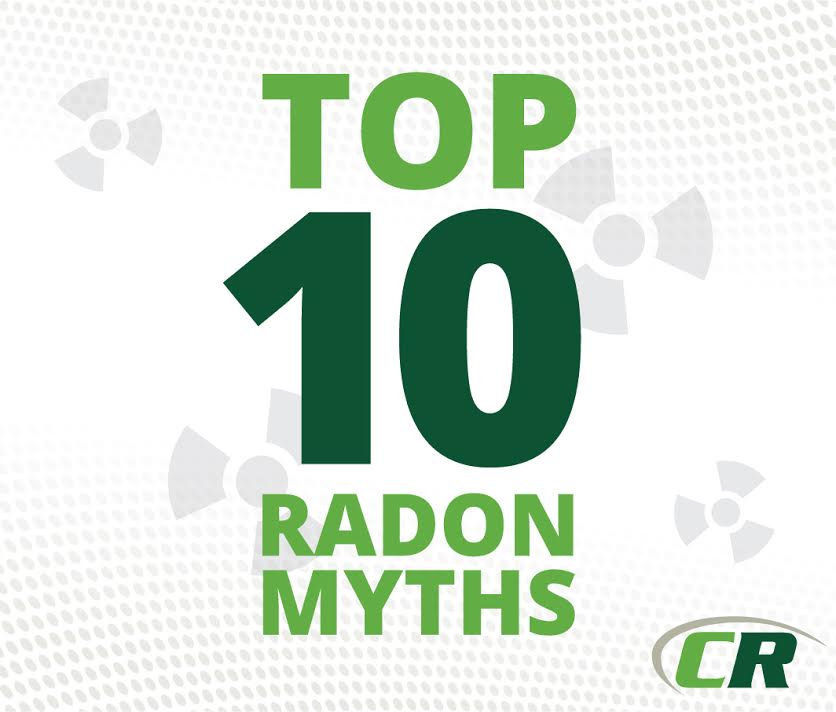There is a lot of misleading information out there about radon. At Certified Radon, we always encourage our customers and the community in general to educate themselves on the facts and not make decisions about their home based on scare tactics. Trusted, unbiased sources for information about radon include the American Lung Association, The American Cancer Society, the CDC (Centers for Disease Control), and the EPA (Environmental Protection Agency), and locally, the Kansas Radon Program run by Kansas State University. Below are some of the most prevalent myths about radon and the accurate information, as presented by the EPA:
Myth 1: Scientists are not sure that radon really is a problem.
Fact: Although some scientists dispute the precise number of deaths due to radon, all the major health organizations (like the Centers for Disease Control and Prevention, the American Lung Association and the American Medical Association) agree with estimates that radon causes thousands of preventable lung cancer deaths every year. This is especially true among smokers, since the risk to smokers is much greater than to non-smokers.
Myth 2: Radon testing is difficult, time-consuming and expensive.
Fact: Radon testing is easy. You can test your home yourself or hire a qualified radon test company. Either approach takes only a small amount of time and effort. In Consumer Reports tests of radon kits, we found that long-term tests, which take readings for at least 90 days, are more accurate than short-term kits.
Myth 3: Homes with radon problems can’t be fixed.
Fact: There are simple solutions to radon problems in homes. Thousands of homeowners have already fixed radon problems. Most homes can be fixed for about the same cost as other common home repairs. Call your state radon office for help in identifying qualified mitigation contractors.
Myth 4: Radon affects only certain kinds of homes.
Fact: Radon can be a problem in homes of all types: old homes, new homes, drafty homes, insulated homes, homes with basements, and homes without basements. Local geology, construction materials, and how the home was built are among the factors that can affect radon levels in homes.
Myth 5: Radon is only a problem in certain parts of the country.
Fact: High radon levels have been found in every state. Radon problems do vary from area to area, but the only way to know your radon level is to test.
Myth 6: A neighbor’s test result is a good indication of whether you have a problem.
Fact: It’s not. Radon levels can vary greatly from home to home. The only way to know if your home has a radon problem is to test it.
Myth 7: Everyone should test their water for radon.
Fact: While radon gets into some homes through water, it is important to first test the air in the home for radon. If your water comes from a public water supply that uses ground water, call your water supplier. If high radon levels are found and the home has a private well, call the Safe Drinking Water Hotline at (800) 426-4791 for information on testing your water.
Myth 8: It’s difficult to sell homes where radon problems have been discovered.
Fact: Where radon problems have been fixed, home sales have not been blocked or frustrated. The added protection is sometimes a good selling point.
Myth 9: I’ve lived in my home for so long, it doesn’t make sense to act now.
Fact: You will reduce your risk of lung cancer when you reduce radon levels, even if you’ve lived with an elevated radon level for a long time.
Myth 10: Short-term tests can’t be used for deciding about whether to fix your home.
Fact: Short-term tests can be used to decide whether to reduce a home’s high radon levels. However, the closer the short-term testing result is to 4 pCi/L (pico Curies per Liter), the less certainty there is about whether the home’s year-round average is above or below that level. Keep in mind that radon levels below 4 pCi/L still pose some risk and that radon levels can be reduced to 2 pCi/L or below in most homes.
Certified Radon’s team of professional, industry-certified technicians are always happy to answer questions and address any concerns. Give us a call at 816.587.3500 or visit us at www.CertifiedRadonKC.com for more information.




